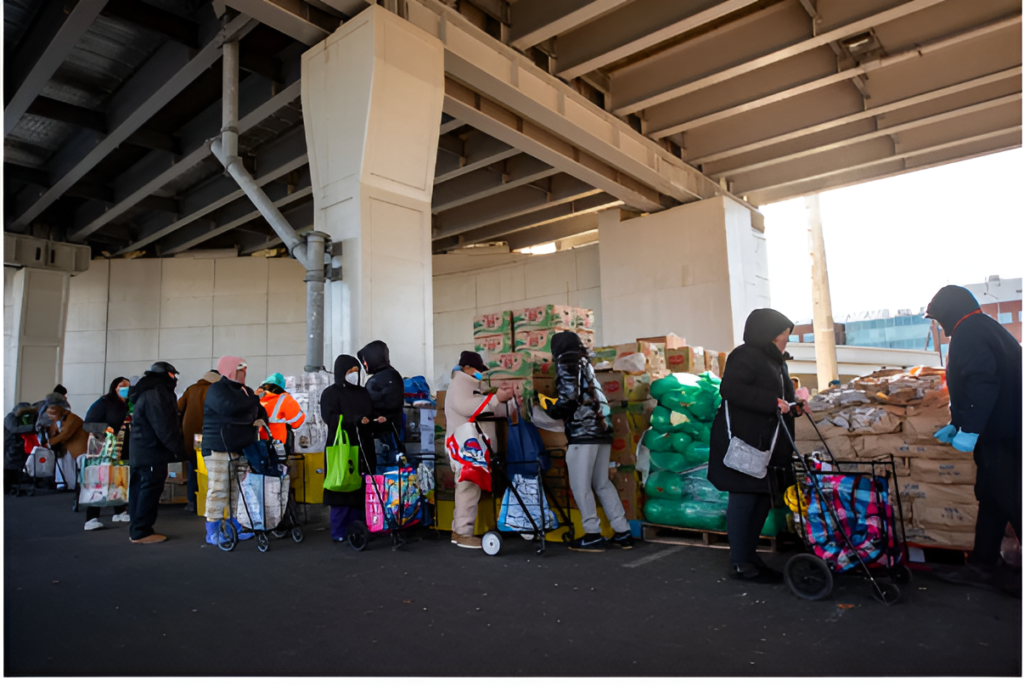
As the holiday season reminds us of the growing issue of hunger in America, the ongoing debate over food assistance programs takes center stage. Despite charitable donations and community efforts, the problem persists, with more than 44 million Americans struggling to access sufficient food. Yet, under the leadership of presidential candidate Donald Trump and the current Republican-controlled Congress, millions more could be pushed into food insecurity as cuts to food programs continue.
Since taking office, GOP lawmakers have rolled back pandemic-era food assistance programs, restricted access to food stamps, and signaled more cuts to assistance in the future. New Speaker of the House, Mike Johnson, has made reducing funding for food assistance a priority. This approach echoes a long-standing GOP tradition, dating back to Ronald Reagan’s presidency. Reagan, who framed himself as a champion of freedom, implemented cuts to social services with the belief that individuals should take more responsibility for their lives and that government intervention should be minimized. The result was a reduction in government spending on welfare, food programs, and other social services, a trend that continues under today’s GOP leadership.
Speaker Johnson, who is deeply influenced by his Southern Baptist faith, has said that his religious beliefs shape his political priorities. However, his stance on issues such as food assistance and poverty relief seems at odds with many of the teachings of Jesus Christ, who emphasized caring for the poor and needy. The Bible urges followers to be generous with the less fortunate and to care for those in need, yet the Republican Party’s current policies appear to neglect these values in favor of reducing government spending.
The history of American poverty relief is complex. Early in the nation’s history, charity was largely localized, with communities providing assistance to the poor, but often with stringent rules about who was deemed “worthy” of aid. As the country industrialized and urbanized, religious groups stepped in to provide some relief, though their efforts were sometimes limited and patronizing. In the 20th century, the federal government took a larger role in poverty alleviation, particularly during Franklin D. Roosevelt’s New Deal and Lyndon B. Johnson’s War on Poverty. Johnson’s Great Society programs expanded food stamps and introduced other initiatives to help lift Americans out of poverty.
However, following the Vietnam War and Reagan’s rise to power, the federal government’s role in addressing poverty began to shrink. Reagan’s cuts to food programs and welfare assistance led to an increase in poverty that persists today. The current GOP’s approach continues to prioritize reducing government spending on social services, despite the ongoing need for assistance among millions of Americans.
In 2022, the U.S. Census Bureau reported a 5% increase in the number of Americans living in poverty, a figure that has been exacerbated by the economic impact of the COVID-19 pandemic. These rising poverty rates are a stark reminder of the consequences of the GOP’s long-standing approach to welfare and food assistance. As the country continues to grapple with issues of hunger and food insecurity, the debate over how best to support the nation’s most vulnerable citizens remains as relevant as ever.
While the Republican Party remains steadfast in its belief in reducing government intervention, it is unclear whether this approach aligns with the values of compassion and care that many Americans associate with faith-based teachings. As the issue of food insecurity continues to grow, the question remains: will the GOP change course, or will their policies leave millions more struggling to put food on the table?

